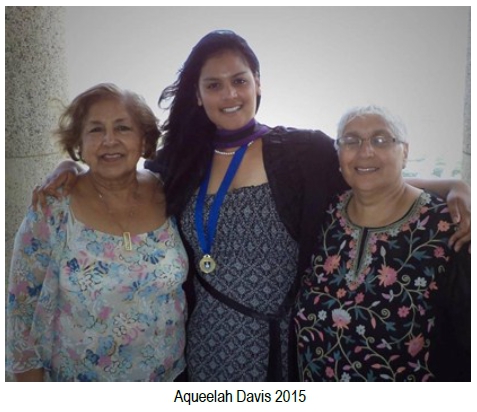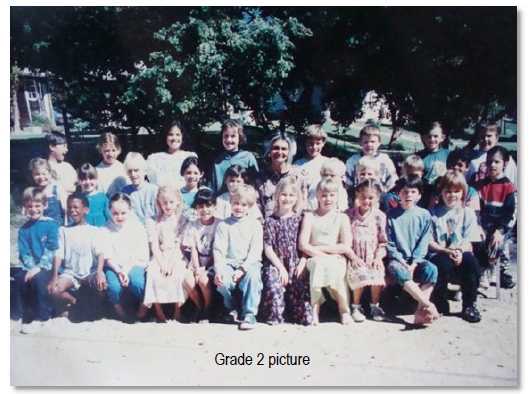I am Aqeelah Davis and was at Constantia Waldorf School from kindergarten until matriculation in 2007. In 1994 when I began my Waldorf career I did so as a child of the new South Africa where differences where encouraged and not shunned. Waldorf was a place where individual differences were nurtured. It was here I was taught Xhosa, which would help me later in life, from grade 1 until matric. At that time this was a rarity among education.
When I left Waldorf, I decided to study engineering at the University of Cape Town. It unfortunately was not for me. I hated the fact that I was always indoors and couldn’t enjoy the beauty of nature that I was privileged to in my youth. So I fearlessly changed my degree to one that catered to those desires. I remembered how, during my 4th year at Waldorf, Howard Dobson had taken us to see the Cape geology and so I studied geology and environmental and geographical studies.
I loved working outdoors and doing experiments, all the things I had enjoyed at Waldorf. At UCT they only allow 35 people into second year and I managed to get in. In my third year I attained a bursary at one of the top 3 platinum mining companies at the time. I did my honours in geology at UCT where they only take 16 per year. With this degree I saw almost every province in this country and the natural wonders it had to offer, some deep beneath the earth and others high above.
On every tertiary field trip I would bring back with me a piece of the earth. From the Witwatersrand gold 3.5km deep, the eclogites from the mantle in Kimberly, the ancient glossopteris leaves in coal, the trilobites of the Cape Fold Mountains to the pink lepidolite micas near Nous Wells. All of these grew the love I had for the earth and its rich history.
After my honours I moved to Rustenburg to work for the mining company to pay back my bursary. I was now a mine geologist. Not a very glamorous endeavour. I would go underground and work with the miners at 5:30am in the morning, then map the 1.4mx1.2m areas about 6km in. After coming up to surface at midday I would update the day’s core logging and mapping on the computer systems.
Most people underground on the mines do not speak the same language. Some do not speak English at all. What helped me was my knowledge of Xhosa. Fanagalo, spoken at the mines, is a mixture of English, Afrikaans, Zulu, Xhosa and Tswana. This made up language was the way you communicated underground. If you didn’t you could get killed.
 Although I loved the study of geology the mining environment was not one I could tolerate for very long. The way people treated others was without kindness and respect. This is the same as I observed them treating the earth. The mines had destroyed the underground water supply in many areas of the North West. Since only 3% of all water on earth is drinkable I made the decision to not be a part of the problem anymore.
Although I loved the study of geology the mining environment was not one I could tolerate for very long. The way people treated others was without kindness and respect. This is the same as I observed them treating the earth. The mines had destroyed the underground water supply in many areas of the North West. Since only 3% of all water on earth is drinkable I made the decision to not be a part of the problem anymore.
I am no longer in mining but will be pursuing an MSc degree in Hydrogeology. I wish to make a difference in the lives of others in a positive way through my research and the implementation of my research.
My Waldorf education has had a strong influence on how I see the world. The world is not a black and white book and life is never set in stone. Constantia Waldorf taught me to show respect for all things, to move with the changes and to always try to create sustainability. I hope that through research and effort I can help in a small way.
